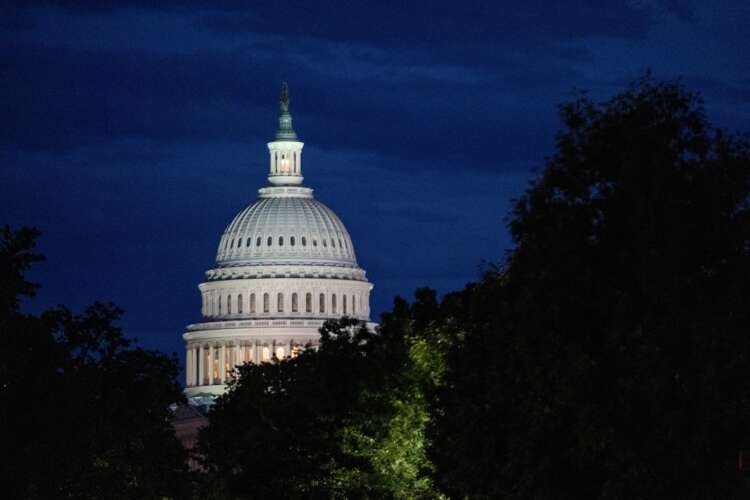Explainer-How could the new U.S. corporate minimum tax affect companies?


By Rose Horowitch and David Lawder
(Reuters) – The main revenue source in the new U.S. tax, climate and drugs bill is a novel 15% corporate minimum tax aimed at stopping large, profitable companies from gaming the Internal Revenue Service code and slashing their tax bills to zero.
The U.S. House of Representatives was scheduled to vote on Friday on the $430 billion legislation and send it to President Joe Biden’s desk for signing into law, a political triumph for his Democratic Party ahead of the Nov. 8 midterm election.
The nonpartisan Joint Committee on Taxation estimates thatthe new tax will add around $222 billion to U.S. governmentcoffers over the next 10 years, down from a previous projectionof $313 billion after last-minute changes to the bill. It willapply to companies with more than $1 billion in “book income,”the profits they report to shareholders before the effects oftax deductions and credits.
Here are some key details on how it would work:
What is the corporate minimum tax?
A wealth of deductions, credits and loopholes in the federaltax code has allowed some companies to report no income ornegative income to the IRS while reporting strong profits toshareholders. Biden has repeatedly singled out Amazon.com Inc for paying little to no federal income tax despite billions of dollars in profits.
If enacted, the tax will serve as a corporate version of theAlternative Minimum Tax for individuals, which prevents thewealthiest Americans from zeroing out their tax bills withinvestment losses and other deductions and credits.
The tax would likely apply to around 150 of the world’slargest companies, according to a Joint Committee on Taxationanalysis. These include large pharmaceutical companies and majorcorporations like Amazon, Apple Inc, ExxonMobil Corp and Nike Inc, according to severalthink tanks that support the new tax. Amazon declined to commenton a potential tax increase. Apple, Exxon Mobil and Nike did notrespond to requests for comment.
Companies that meet this threshold must calculate theirtaxes under both the 21% income tax regime and the 15% corporateminimum tax regime – and pay the higher bill.
The tax would take effect next year and affect companiesthat earned an average of $1 billion in book income for threeconsecutive years. It would also apply to foreign companies thatearn $100 million of book income in the United States.
What are the exceptions for companies?
Some regular corporate income tax credits and deductions arestill allowed under the minimum tax, including credits forforeign taxes paid. The carrying forward of prior-year losses tooffset future income is also permitted, but only 80% can beapplied to reducing taxable income. Credits for research anddevelopment expenses are also allowed, with 75% of the valueapplied to reducing corporate minimum tax.
At the urging of Democratic Senator Kyrsten Sinema,lawmakers added a provision to preserve deductions on capitalinvestments such as machinery, vehicles and buildings. Theexception would allow companies to more quickly offset theseexpenses against tax bills.
Under another last-minute change to the legislation urged bySinema, companies controlled by private equity firms are notsubject to the corporate minimum tax if they make less than $1billion of book income, even if that investment firm’s combinedportfolio of companies exceeds the threshold. Some privateequity firms may be able to shift assets among companies intheir portfolios so that each earns less than the $1 billionthreshold to avoid the minimum tax.
Book income is calculated based on the income companiesreport to shareholders, and the new tax may give companies anincentive to lower the book income they report, law firm BakerHostetler said in a recent note. They pointed to a nonpartisan Congressional Research Service report showing evidence of how past efforts to levy taxes based on book income compelled corporate taxpayers to manage their earnings and adjust book income to reduce taxes.
Large companies also could try to lobby the nongovernmentalFinancial Accounting Standards Board for favorable changes tothe rules for calculating book income.
(Reporting by Rose Horowitch and David Lawder; Editing byJonathan Oatis and Howard Goller)
The corporate minimum tax is a tax that ensures large, profitable companies pay at least a minimum tax rate, preventing them from reducing their tax bill to zero through deductions and credits.
Book income refers to the profits that companies report to their shareholders before accounting for tax deductions and credits, which is used to determine tax obligations.
Tax deductions are expenses that taxpayers can deduct from their total taxable income, reducing the amount of income that is subject to tax.
The Joint Committee on Taxation is a nonpartisan committee of the U.S. Congress that provides analysis and estimates of the effects of tax legislation.
The Alternative Minimum Tax is a tax system that ensures that certain taxpayers pay at least a minimum amount of tax, regardless of deductions and credits.
Explore more articles in the Top Stories category











